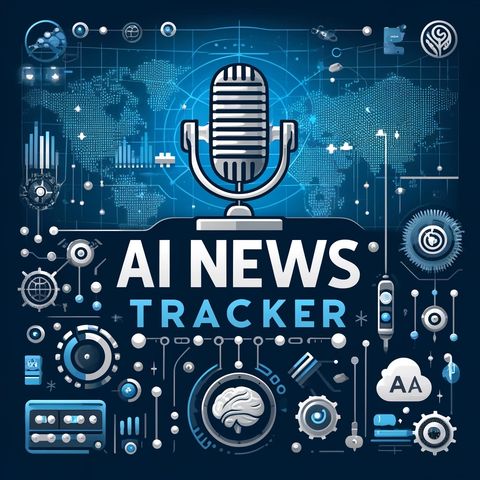Generative AI Transforms Industries: From Visuals to Proteins

Download and listen anywhere
Download your favorite episodes and enjoy them, wherever you are! Sign up or log in now to access offline listening.
Generative AI Transforms Industries: From Visuals to Proteins
This is an automatically generated transcript. Please note that complete accuracy is not guaranteed.
Description
Artificial Intelligence, or AI, plays a continually growing and transformative role in our contemporary society. It's an invisible force woven into the very fabric of our daily lives - from...
show moreGenerative AI broadly refers to an advanced level of artificial intelligence algorithms that leverage techniques such as Generative Adversarial Networks (GANs) or transformers like GPT-3, developed by OpenAI, to learn and understand patterns within data and then produce new, constructive outputs of some kind. They offer the potential to generate anything ranging from images, music, even textual content, thus creating a massive impact across contemporary industries.
For instance, when we look at Adobe, they are using generative AI in applications such as Photoshop or Premiere Pro, providing users the ability to edit or enhance their visuals using AI functionalities. Brands like Autodesk have recognized the potential of AI and are implementing it to generate 3D models from 2D drawings, effectively reshaping the landscape of architectural, engineering, and construction industry.
Moreover, AI's dynamic impact extends not just limited to these areas, it's penetrating the core of our medical field as well. Companies like DeepMind, a subsidiary of Alphabet, have made progress in using generative AI to predict complex, 3-dimensional shapes of proteins. This could lead to numerous breakthroughs in understanding diseases and creating new medications, radically propelling advancements in healthcare.
Such developments indeed convey revolutionary promises. But, it's just the beginning. As we step forward, anticipate more intricate use cases across sectors like self-driving cars using AI for generating real-time decisions, machines generating wearable products or AI in food industry generating personalized nutrition plans.
However, alongside such opportunities, it's also crucial to be mindful of the challenges such as ethical considerations, privacy issues and biases in AI. It's the responsibility of everyone, from teams like OpenAI and DeepMind, tech giants like IBM and Google, to governmental organizations to ensure ethics, safety, and fairness in generative AI.
To cap this off, AI and generative AI in particular, are not just another technological trend. They're reshaping our world in ways we're just starting to understand. As AI grows and evolves, it's important to embrace these changes, learn along with it, and ensure that its development leads to a future we all want to be part of. Remember, AI doesn't just predict the future – it's actively building it.
With each passing day, newer applications and tools are emerging, and I look forward to sharing more about these advancements in our daily interactions. Today's story might be about Adobe or Autodesk using generative AI, but who knows what exciting developments tomorrow might bring? Let's continue on this journey, exploring the constantly evolving landscape of AI together.
Information
| Author | QP-4 |
| Organization | William Corbin |
| Website | - |
| Tags |
Copyright 2024 - Spreaker Inc. an iHeartMedia Company
